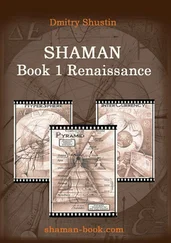The startled operator fell silent and Istomin heard crackling and rustling sounds in the earpiece, and a distant voice, distorted beyond recognition.
Elena turned away to the wall, hiding her tears. What more could she do to hold him back? Why was he so glad to grab the first opportunity to get away from the station, using that moth-eaten old excuse about orders from the command and punishment for desertion? What had she failed to give him, what else should she have done in all these fifteen years, in order to tame him? But here he was, longing to get back into the tunnels again, as if he hoped to find something out there, apart from darkness, emptiness and death. What was it he was looking for?
Homer could hear her reproaches in his own head as clearly as if she were speaking out loud. He felt mean and shabby, but it was too late to retreat now. He almost opened his mouth to apologise, to speak warm, tender words, but he choked, realising that every word would only throw more fuel on the flames.
And above Elena’s head Moscow cried – hanging on the wall, lovingly set in a little frame, was a colour photograph of Tver Street in a transparent shower of summer rain, cut out of an old glossy calendar. At one time, a long time ago, during his old wanderings round the Metro, Homer had owned nothing but his clothes and that photo. Other men’s pockets held crumpled pages with photos of naked beauties, torn out of men’s magazines, but for Homer they couldn’t take the place of a real, live woman, even for a few brief, shameful minutes. That photo reminded him of something that was infinitely important, inexpressibly beautiful… And lost forever.
With an awkward whisper – ‘I’m sorry’ – he edged out into the corridor, carefully closed the door behind him and squatted down, absolutely drained. The neighbours’ door was ajar, and two puny, pasty-faced little children, a boy and a girl, were playing in the opening. Catching sight of the old man, they froze: the crudely sewn bear stuffed with rags that they had just been arguing over flopped to the floor, forgotten.
‘Uncle Kolya! Tell us a story! You promised you’d tell us one when you got back!’ they exclaimed, dashing at Homer.
‘Which one do you want?’ he asked, unable to refuse.
‘About the mootants with no heads!’ the little boy howled gleefully.
‘No! I don’t want a story about mootants!’ the little girl exclaimed sulkily. ‘They’re frightening, I’m afraid!’
‘So which story do you want, Taniusha?’ the old man sighed.
‘In that case, the one about the fascists! And the partisans!’ the little boy interrupted.
‘No… I like the one about the Emerald City…’ Tanya said with a gap-toothed grin.
‘But I told you that one only yesterday. Maybe the one about how Hansa fought the Reds?’
‘The Emerald City, the Emerald City!’ they both clamoured.
‘Oh, all right,’ the old man agreed. ‘Somewhere far, far away on the Sokolniki Line, out beyond seven empty stations, out beyond three ruined Metro bridges, a thousand, thousand sleepers away from here, lies a magical underground city. This city is enchanted and ordinary people can’t get into it. Magicians live there, and only they can come out through the gates of the city and go back in again. And up on the surface of the ground is a huge, mighty castle with towers, where these wise magicians used to live. This castle is called…’
‘The Versity!’ the little boy called out, giving his sister a triumphant look.
‘The University,’ Homer confirmed. ‘When the Great War happened and the nuclear missiles started raining down, the magicians withdrew into their city and put a spell on the entrance, so the wicked people who started the war wouldn’t get in. And they live…’ He gagged and stopped.
Elena was standing there, leaning against the doorpost and listening to him: Homer hadn’t noticed her coming out into the corridor.
‘I’ll pack your knapsack,’ she said in a hoarse voice.
The old man walked up to Elena and took her by the hand. She put her arms round him awkwardly, feeling shy in front of the neighbours’ children, and asked:
‘Will you come back soon? Will you be all right?’
And Homer, astounded for the thousandth time in his long life by the invincible female love of promises, regardless of whether it was possible to keep them or not, said: ‘Everything will be just fine’.
‘You’re so old already, but you kiss like you were a young couple,’ said the little girl, making a spiteful face.
‘And our dad said it isn’t true, there isn’t any Emerald City,’ the little boy said in a surly voice, just to round things off.
‘Maybe there isn’t,’ Homer said with a shrug. ‘It’s just a story. But how can we get by here without stories?’
It was appallingly difficult to hear anything. The voice forcing its way through the crackling and rustling sounded vaguely familiar to Istomin – a bit like one of the team of three scouts sent to Serpukhov.
‘At Tula Station… We can’t… Tula…’ said the voice, straining to communicate something important.
‘I understand that you’re at Tula!’ Istomin shouted into the receiver. ‘What happened? Why don’t you come back?’
‘Tula Station! Here… Don’t… It’s very important… don’t…’ But the end of the phrase was swallowed up by the damned interference.
‘Don’t what? Say again, don’t what?’
‘You mustn’t storm it! Whatever you do, don’t storm it,’ the receiver suddenly said quite clearly and distinctly.
‘Why? What the devil is going on there? What’s happening?’ the commandant yelled impatiently.
But he couldn’t hear the voice any more; it was drowned in a massive surge of noise, and then the receiver went dead. But Istomin refused to believe it and he wouldn’t hang up.
‘What’s happening?’
Homer thought he would never forget the look he got from the sentry who said goodbye to them at the most northerly guard post. It was the same look people give the body of a fallen hero as the honour guard fires that final volley in salute: a mournful, melancholy kind of look. Saying goodbye forever.
Looks like that aren’t meant for the living. Homer felt like he was climbing up a flimsy ladder into the cabin of a tiny plane that could take off but never land again, because devious Japanese engineers had converted it into a machine from hell. The imperial banner fluttered in the salty wind, mechanics bustled about on the airfield, engines hummed and sprang to life, and a potbellied general held his fingers tight up against the peak of his cap, his puffy eyes glittering with samurai envy…
‘What’s got you in such a cheerful mood?’ Ahmed asked, shattering the old man’s daydream.
Unlike Homer, he felt no urge to be first to discover what was going on at Serpukhov Station. He had left his wife behind on the platform, brooding silently as she clutched their first child’s little hand in her left hand and cradled their second child in her right arm, cautiously nestling the mewling bundle against her breast.
‘It’s like drawing yourself up to your full height – and launching yourself into the attack, charging the machine-guns. The same feeling of reckless elation. We’ll face a hail of deadly fire up ahead,’ Homer tried to explain.
‘What you have is a different kind of attack,’ Ahmed muttered, looking back towards the little patch of light at the end of the tunnel. ‘Custom-made for psychos like you. No sane man would voluntarily go up against a machine-gun. Who needs dumb heroics like that?’
‘Well you see, it’s like this,’ the old man replied after a brief pause. ‘When you feel your time coming, you start thinking: Have I really done anything? Will I be remembered?’
Читать дальше











